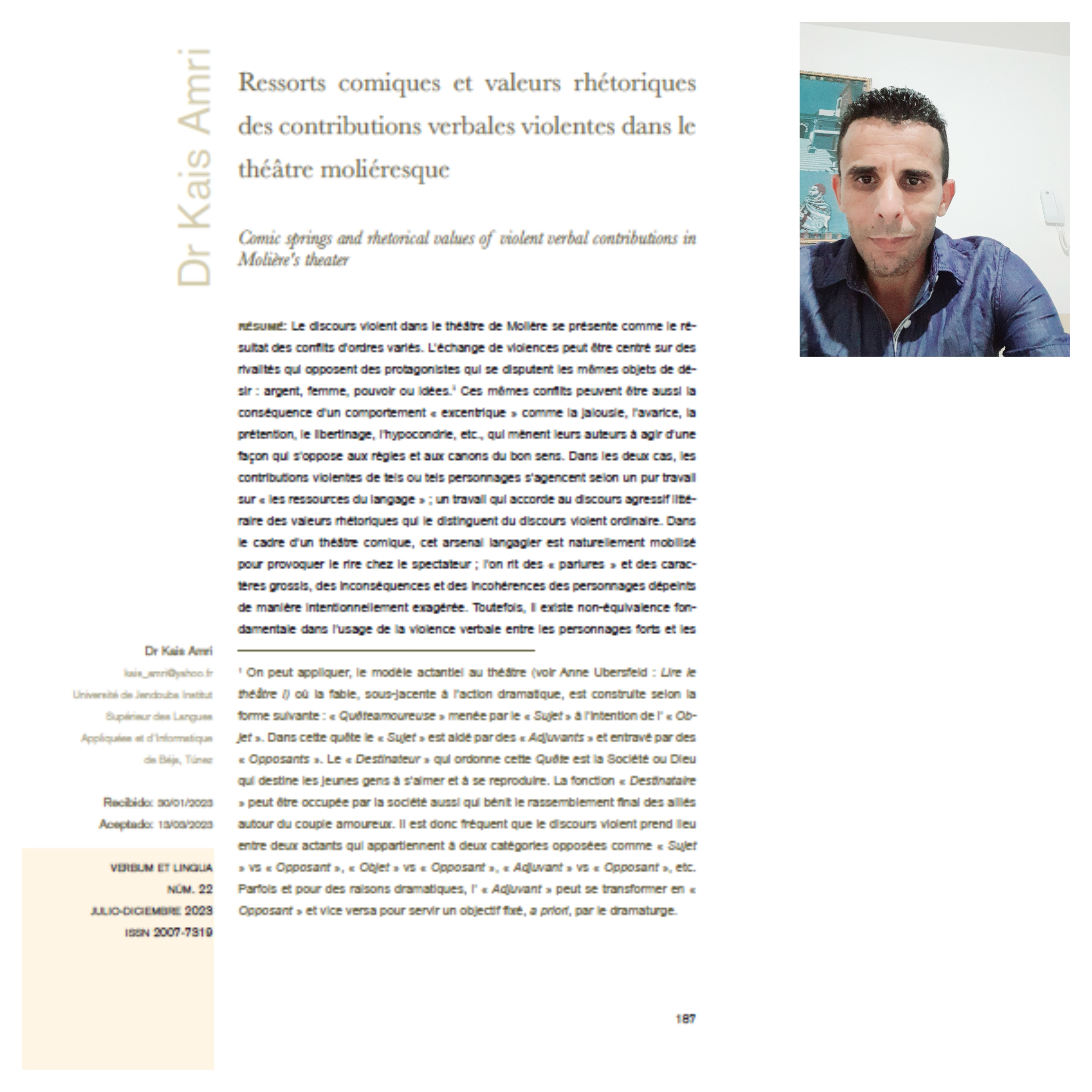Comic springs and rhetorical values of violent verbal contributions in Molière's theater
DOI:
https://doi.org/10.32870/vel.vi22.217Keywords:
impoliteness, violent speech, comic, catharsisAbstract
The violent discourse in Molière's theater is presented as the result of conflicts of various orders. The exchange of violence can be centered on rivalries between protagonists who dispute the same objects of desire: money, women, power or ideas. These same conflicts can also be related to «eccentric" behavior such as jealousy, avarice, pretension, licentiousness, hypochondria, etc., which lead their authors to act in a way that opposes to the rules and canons of common sense. In both cases, the violent contributions are arranged according to a pure work on “the resources of language”; a work that gives aggressive literary discourse rhetorical values that distinguish it from ordinary violent discourse. In the context of comic theatre, this linguistic arsenal is naturally mobilized to push the spectator to laugh; we make fun of weird ways of speaking and acting. However, there is a fundamental non-equivalence in the use of verbal violence between weak and strong characters. While the strong use direct rudeness and assert themselves through taking charge of their aggressive speech, the weak resort to more cautious discursive strategies such as “false politeness” and “hyper-politeness” to attack without running the risk of being discovered. These aggressive exchanges serve as a kind of "comic catharsis", which by mobilizing verbal violence, entertains the spectator by pushing him to laugh at the characters judged as eccentric. This is of course done with the good intention of bringing these sick persons back to common sense.
Downloads
Metrics
References
Bonhomme Marc, Pragmatique des figures du discours, Paris: Honoré Champion, 2014.
Bousfield, Derek. Impoliteness in interaction. Amsterdam/Philadelphia : John Benjamins Publishing Company, 2008.
Brown, Penelope, et Stephen C Levinson. Politeness-Some universals in language usage. Cambridge: Cambridge University Press, 1987.
Dandrey Patrick, Molière ou l’esthétique du ridicule, Paris, Klincksieck, 2002.
Dandrey Patrick, le « cas » Argan » molière et la maladie imaginaire, Paris, Klincksieck, 1993.
Foucault, Michel Histoire de la folie à l’âge classique, Paris, Gallimard, 1972.
Gutwirth Marcel, Molière oul’invention comique. La métamorphose des thèmes, la création des types, Paris, Lettres modernes Abbeville, impr. F. Paillart, 1966.
Jakobson Roman, Huit questions de poétique, Paris, Editions du Seuil, 1977.
Jakobson Roman, Essais de linguistique générale, Paris, Les Editions de Minuit, 1963.
Kleiber Georges, Métaphore : le problème de la déviance, Langue française 101, p. 35- 56., 1994.
Mauron Charles, Psychocritique du genre comique, Paris, José Corti, 1964.
Molière : Jean Baptiste Pouquelin :
- George Dandin,
- L’Avare,
- La Jalousie du Barbouillé,
- L’Eole des Femmes,
- Le malade imaginaire,
- Le Médecin malgré lui,
- Dom Garcie de Navarre,
- Les Précieuses ridicules,
- Le Misanthrope,
- Dom Juan
- La Pléiade Œuvres complètes, Tom 1 et Tom 2, 2010.
Ubersfeld Anne, Lire le théâtre I, Paris, Belin Sup, 1996.
Lire le théâtre III , Paris, Belin Sup, 1996.
Molino Jean, Sur le parallélisme morpho-syntaxique, Langue française/Année 1981/49/pp. 77-91, p . 77.
Molino, J. F. Soublin et J. Tamine, "Présentation: problèmes de la métaphore", in Langages, n° 54/ 1979, p. 23.
Perelman Chaïm, L’empire rhétorique : rhétorique et argumentation, Paris, Vrin, 1977.
Sartre, Jean-Paul. Qu’est-ce que la littérature.Paris, Gallimard, 2011.

Published
Versions
- 2024-08-30 (2)
- 2023-07-01 (1)












